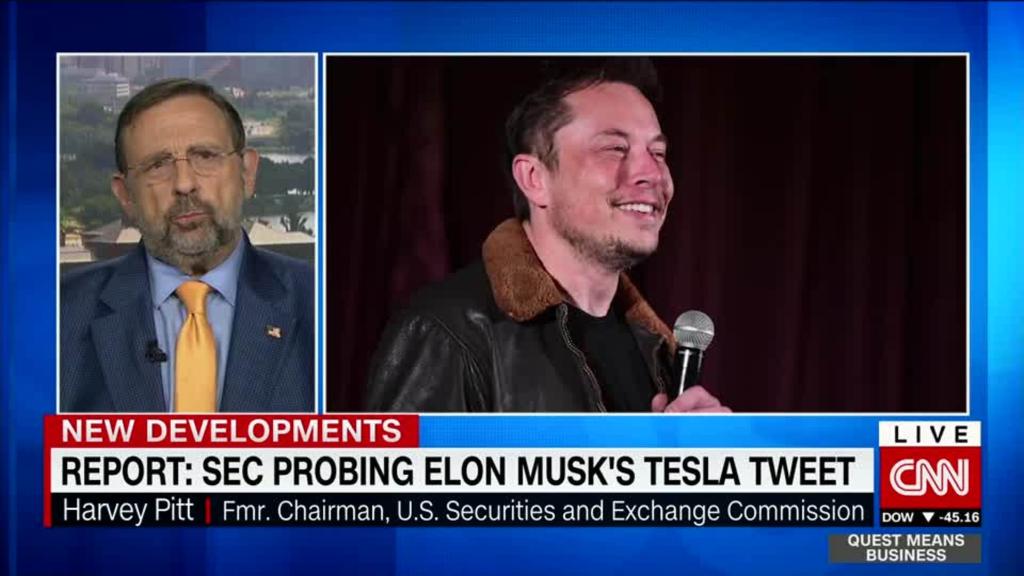
The very public discussion between sleep guru Arianna Huffington and Tesla CEO Elon Musk about the merits of rest is about much more than getting enough Zs. It speaks to the broader struggle in Silicon Valley -- and beyond -- of achieving a healthy life-work balance.
To recap their conversation, Musk, in an emotional interview with the New York Times last week, called the past 12 months "the most difficult and painful year" of his career. He admitted that he has great difficulty refueling and recharging, doesn't spend enough time with his family, and takes Ambien to help him sleep.
Huffington, who runs wellness startup Thrive Global, published an open letter urging him to ease up on the 120-hour weeks and to quit sleeping at the Tesla factory. In the wee hours Sunday, Musk tweeted back, "You think this is an option. It is not."
She refused to let him off the hook. In a statement, she said the nation's work culture deludes people into believing burning out is the price of success. "As all the recent scientific findings show, the opposite is true," she wrote.
She's not wrong.
Studies show a definitive link between getting enough sleep and being an effective leader. Research by the management consulting firm McKinsey shows a strong correlation between the amount of rest executives get and both their leadership performance and a company's organizational health. Research from Harvard Medical School shows that a lack of sleep creates heightened emotional reactivity, and that stress negatively impacts quality of sleep.
Jeff Bezos, the world's wealthiest person and one of the world's leading CEOs, has said he makes a point of getting eight hours of shuteye each night. "If you shortchange your sleep, you might get a couple of extra 'productive' hours, but that productivity might be an illusion," he told Thrive Global in a 2016 interview.
Of course, this isn't really about how much time Musk or Bezos or anyone else spends sleeping. It's about the go-go-go pace too many executives and entrepreneurs set for themselves.
Related: Arianna won't let Elon Musk off the hook
"Sleep is a proxy for a larger discussion, which is about exhaustion," said Jerry Colonna, a former venture capitalist turned "CEO coach" and founder of Reboot, a life-coaching firm that works with hundreds of tech companies, including Lyft, SoundCloud and Etsy.
"Investors thrive on entrepreneurs who work themselves to death -- and I'm not speaking metaphorically," he added. "I'm not kidding when I say people sit around and talk about how they'll sleep when they're dead."
Relying on medicinal assistance to sleep is a troubling, and not uncommon, trend.
"Ambien or weed," Colonna said. "They're high so much of the day that they cannot get down."
The tech sector tends to attract people who are predisposed to working hard. While some may let themselves rest after work "sprints," others may continuously cycle through periods of great stress without taking care of themselves. Colonna said high levels of stress often provide people with a measure of validation but can mask deeper problems like bipolar disorder.
"Understand that the industry thrives on people who will commit to depleting themselves," Colonna added. He said he'd ask anyone who feels a need to work relentlessly to ask themselves a few questions: What are you chasing? What are you running from? What would happen if if you don't achieve the thing that you think you need to achieve?
Related: Depression in the C-suite
All of this talk about sleep might leave you thinking it's a matter of getting eight hours and everything will be fine. Not so, said Diana Chapman, co-founder of The Conscious Leadership Group, which has worked with entrepreneurs like Dustin Moskovitz, a cofounder of Facebook and Asana.
"I don't go into the hours because it is arguable and everybody is different," she said. "But, if you're honest, do you feel well rested?"
The challenge, she said, is overcoming the threats and fears -- real or perceived -- that lead people to work themselves to exhaustion. Some entrepreneurs, she said, worry that it's those threats and fears that keep them productive. It's far better, she said, to be driven by a true love of the job. "You'd find motivation from a real passion," she said she tells them.
Lack of sleep, poor eating habits, and not getting enough exercise are "a terrible recipe for a burnout," she said. Getting enough rest and leading a healthy lifestyle contribute to something she called "the power of body intelligence."
"Your instincts are a big part of how you make decisions and if you're tired, accessing your [body intelligence] is really difficult," Chapman said.
All of this underscores the point Huffington and those who share her opinion are making. People simply do not "understand the diminishing returns of overwork," said Phil Wickham, a veteran venture capitalist who has worked with Chapman for many years.
"Sleep is the neglected stepchild of health concerns," said Wickham, who is a participant in a medical study where sleep is a component. He has been meticulously assessing his own sleep patterns, and said it's recalibrated is approach to life. He's started prioritizing rest, exercise, and eating well. Those things come first now, and work comes second. He said it has made a positive difference, and he suggests that others do the same.

